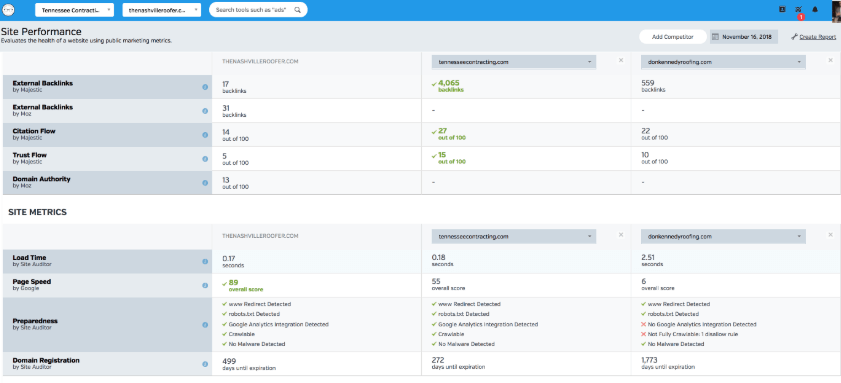For a long time, many search engine optimizers (SEOs) believed that links from government and education websites would help commercial sites perform better in search engine results pages (SERPs). However, that started to become a myth as many SEOs began to debunk it on their blogs and popular forums like WebmasterWorld.com and Search Engine Watch. To put the nail in the coffin, Matt Cutts even went on record to say that links from .GOV and .EDU sites do not help SERPs.
I’ve always believed that .GOV and .EDU sites do help SERPs, and even when most SEOs thought it was a myth, I purposefully left checks for government and education backlinks in our SEO Tools, because I’m convinced that they do matter. How do I know this? Because most of my websites that perform the best in SERPs don’t necessarily have the highest PageRank, but they do have a sizable amount of .GOV and .EDU links.
My lonely belief in the validity of these links became less lonely after I read a recent blog entry by Aaron Wall entitled, “Proof Google Loves EDU & GOV Sites.” He wrote about similar experiences, where he too had sites that had a lower PageRank, but performed well in the SERPs.
“I have a PageRank 7 site that doesn’t rank anywhere near as well as you would expect given its PageRank. I also have a couple PageRank 5 sites that rank for a ton of searches and are getting thousands of visits a day. One of them has less than 30 pages too. What do the PageRank 5 sites have that the PageRank 7 site lacks? Tons of .edu and librarian type links.”
Aaron took it one step further to offer his evidence of a possible Google conspiracy theory regarding government and education domains. 😉
“Google has a Librarian’s newsletter, to help teach librarians how search works, and how to trust good resources (ie: who they should be linking at). Help improve our relevancy by linking at quality sites. That was the first two issues of their newsletter, and perhaps its main goal?”
“Imagine Google training one section of the web about how SEO works, and then not providing the same training to other webmasters. That effect alone will add a bias toward .GOV sites, and goes to show the bias they have toward governmental websites (whether or not they admit it exists).”
I have no doubt that getting quality links from .GOV and .EDU sites can help improve a site’s SERPs. And even if Google didn’t technically show preferential treatment to these top-level domains, they would still be valuable, because there’s a better chance that they’re considered authoritative and trusted.

With the Competition Research tools from Raven Tools, you’ll see what methods your competitors are using and be able to strategically take your own website to the top.




I think it’s a clasic example of correlation not equaling causation. The answer is in who is linking to those pages, not the fact they reside on a .edu or .gov domains.
Jon – I actually found this post while out looking for .edu blogs to link Openyard.com too. Even better, the only reason I was out looking for them was because I wanted to raise my ranking on your Sitening Tool!! What to do.. What to do!
Justin, since your site (online store) is somewhat related to kid’s sports, you may want to look into finding and contacting university departments that focus on sports medicine, education, etc… and seeing if you could interview or publish some of their work. The main thing is to give them attention for the work they’re doing, because educational environments run on ego and attention. At the very least, you could get some interesting link bait for your website. If you’re really lucky, they’ll put a link somewhere on their school’s website to your website — but don’t ask them for a link, because that will make your interest in their work raise red flags and can also be seen as rude.
Thanks for the tip Jon. I can tell I’m going to be learning a ton about SEO and link building over the next few Months. Maybe I can start a “Club Discount Program” So club websites will post links from their team websites.
Indeed, anything that can give someone an incentive to link and buy from you. When in doubt, think Amazon.com.
I definitely agree with you despite the “Official” word from Google. They often publish info they want the masses to believe, that may not match up with their actual operations. Can’t blame them for wanting to keep certain trade secrets though. 🙂